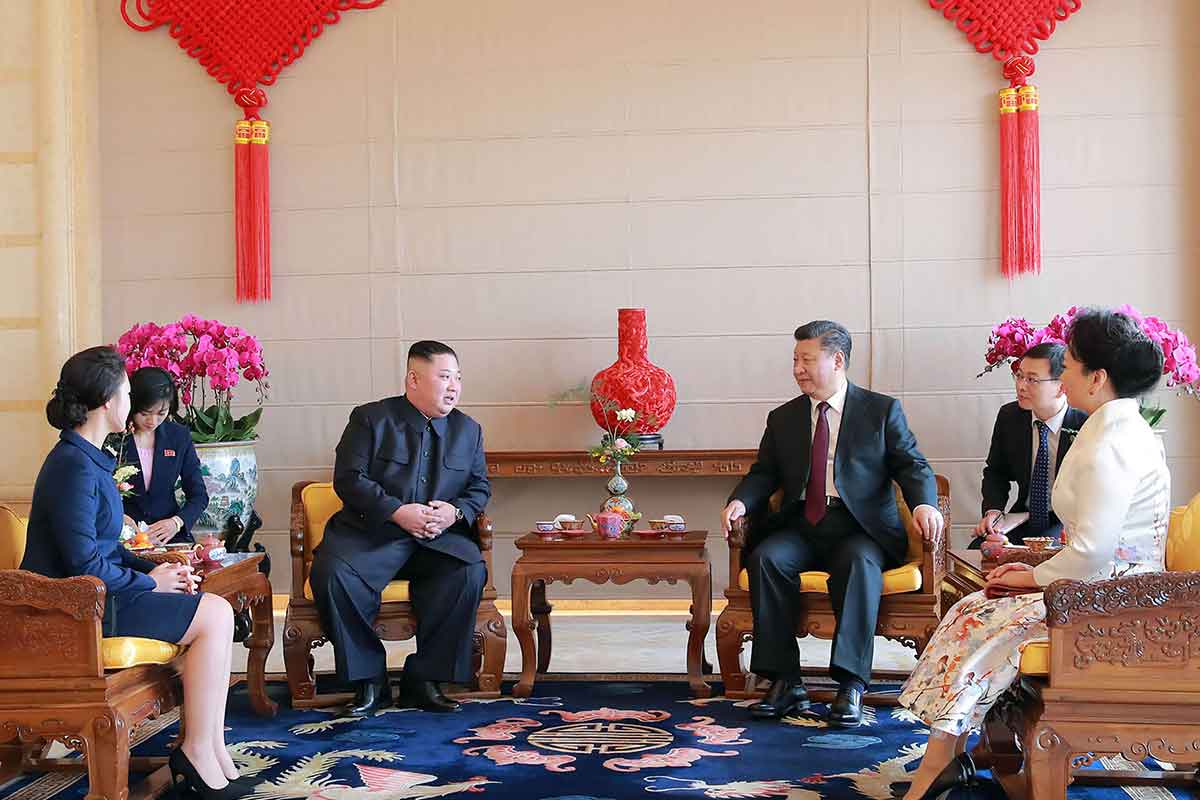By hosting North Korean leader Kim Jong-un for a fourth time, China has signalled again that it will not be side-lined in the diplomatic dance between its Cold War-era ally and Washington.
With another nuclear summit looming between Kim and United States (US) President Donald Trump, a meeting between President Xi Jinping and the North Korean leader was inevitable, according to analysts.
It has become something of a ritual: Last year, Kim briefed Xi before and after his historic summits with Trump and South Korean President Moon Jae-in.
China, which wouldn't want to be left out in the cold in any settlement, has worked to improve relations with its neighbour, which deteriorated after Beijing backed United Nations (UN) sanctions against North Korea.
While Beijing has been angered by Kim's nuclear tests, it would not be happy to see its decades-old ally move closer to the US at China's expense.
"(China) does not think their interests would be threatened by better inter-Korean relations, whereas the possibility of a North Korean alignment with the US, even potentially, against China, I think its Beijing's nightmare," Bonnie Glaser, a senior adviser at the Center for Strategic and International Studies (CSIS) said.
"I don't think they believe it's impossible under President Trump... and this is one of the drivers for Xi Jinping to keep Kim Jong-un close," Glaser said, noting that Xi reached out "very quickly" after Kim started engaging with Moon.
China has played diplomatic wingman to North Korea, even loaning Kim an Air China jet to travel to his meeting with Trump in Singapore last year.
Beijing is intent on keeping Pyongyang within its sphere of influence – the North acts as a buffer state, keeping the 28,500 US troops in South Korea far from China's borders.
Following their meeting in Singapore where Kim and Trump signed a vaguely-worded document pledging work towards the "denuclearisation of the Korean peninsula", progress has stalled, with Pyongyang and Washington unable to agree on what that means.
Security guarantee
North Korea also needs to stay close to its Korea War ally if diplomacy fails.
Trump's withdrawal from the Iran nuclear deal and Libyan leader Moamer Kadhafi's ouster after giving up his own weapons programme are not distant memories.
China could provide economic, political and security guarantees to North Korea in denuclearisation talks, said Hua Po, a Beijing-based independent political commentator.
"If the Korean Peninsula declares itself to be a nuclear-free zone, China can make a nuclear security commitment to North Korea," he said.
As Pyongyang's only major ally, Kim is hoping Xi can push for relief from the multiple sets of sanctions imposed on it over its weapons programmes. The US wants them to remain in place until North Korea gives up its arms, something Pyongyang has made no public promise to do.
"North Korea is looking for something where...they would be rewarded for meeting certain goals, rather than sanctions being lifted only after CVID (complete, verifiable and irreversible destruction) of their nuclear facilities, which is what the US is adamant on," said Graham Ong-Webb, a research fellow at the S. Rajaratnam School of International Studies in Singapore.
According to the official Xinhua news agency, Xi said he hopes North Korea and the US will "meet each other halfway".
No reciprocation
China is "much more pragmatic concerning North Korea's denuclearisation path providing they do not provoke or upturn regional stability," Beijing-based analyst Tom Fowdy said.
"If Washington will not give him (Kim) economic concessions, China in a subtle way almost certainly will...albeit with the expectation he does make progress and does not return to belligerence."
Kim's grandfather Kim Il Sung was also adept at playing off Communist rivals Beijing and Moscow against each other during the Cold War to extract concessions from both.
Yet it appears the overtures so far have been one-way: after four visits to China, Xi has yet to visit Pyongyang.
North Korean state media reported Thursday that Xi accepted Kim's invite to visit, but this was conspicuously absent from Chinese media reports.
"We've had another visit (by Kim), so why is it that Xi Jinping has not gone to Pyongyang and what would it take in order for that visit to actually take place?" asked Glaser.
"Both leaders see value in using this relationship and their engagement for their own purposes, but my take is that there is still a great deal of mistrust," she added. - AFP
